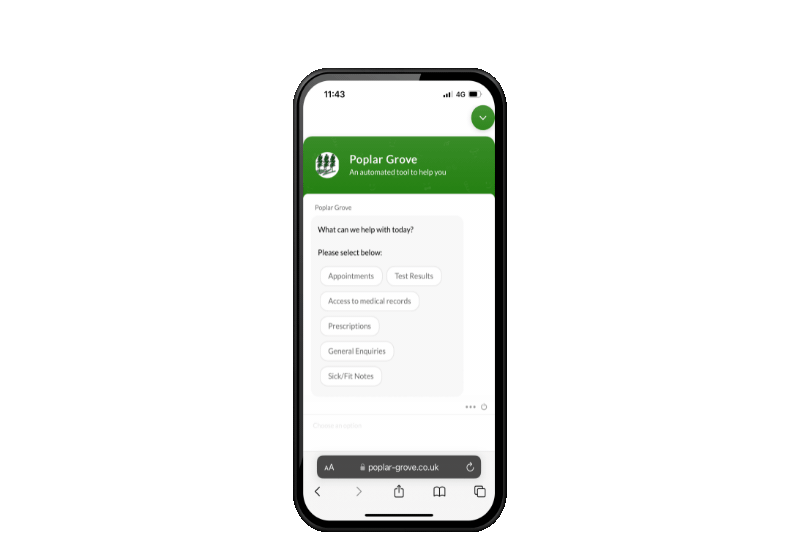
The NHS is a vital part of the UK healthcare system. However, despite its importance, there are significant challenges to accessing NHS services. Long wait times, complex paperwork, and limited availability of key services are common issues faced by patients. Personally, I see digital literacy as THE solution to improve access to the NHS. We have all this great technology yet a huge knowledge gap causing under-utilisation and inefficiencies. Patients not knowing where to go for their need (so they default to phoning in) and healthcare professionals just as confused to really benefit from the tools they have. This article examines the role of digital literacy in enhancing NHS accessibility and highlights the potential benefits it can offer.
The Potential of Digital Literacy to Enhance Access to Health Care
Digital literacy is the ability to use digital technologies, such as computers and the internet, to access, evaluate, manage, and create information effectively. In today’s world, digital literacy is essential in healthcare because it provides easy access to vital health information and services.
The internet has revolutionised healthcare, allowing patients to access healthcare from anywhere, anytime. Patients can learn about various health conditions, symptoms, and treatments on reliable online platforms. They can also access real-time consultations with doctors through video consultations and webchat.
Moreover, digital literacy has the potential to reduce enhance access to healthcare in remote and underserved areas. With the help of online consultation tools, patients living in remote areas can access healthcare services without traveling long distances. Digital tools allow doctors to diagnose and treat patients remotely, reducing the burden on healthcare facilities in urban areas and improving healthcare outcomes in rural areas.
Digital literacy also enables patients to manage their health better. Patients can use digital health tools to track their health data, such as blood pressure, blood sugar, and heart rate. They can also set reminders for medication, appointments, and follow-up visits, improving their adherence to treatment plans and reducing the risk of complications. Not to mention a reduction in DNAs.
Digital literacy empowers patients to make informed decisions about their health. Patients can access reliable health information online, enabling them to make informed choices about their health and lifestyle. As technology continues to advance, digital literacy is becoming increasingly essential in healthcare, and healthcare providers must ensure that patients have the necessary skills to use digital technologies effectively.

How Digital Literacy Can Help Bridge the Gap in NHS Access
Digital literacy can help reduce health inequalities by providing accessible and convenient healthcare services to everyone, regardless of their location. This is particularly beneficial for those living in rural areas or those with mobility issues.
Digital literacy can also help doctors and nurses improve their communication with patients, with digital tools like PACO by Blinx Healthcare automatically translating communications into the patient’s preferred language.
Digital literacy also improves a practices efficiency and effectiveness. With the digital infrastructure, healthcare providers can access and add to patient records and medical histories quickly and easily. This allows them to provide more personalised and effective healthcare to patients.
In conclusion, a focus on digital literacy will revolutionise healthcare services UK. It can help bridge the gap in NHS access and provide accessible and convenient healthcare services to everyone. It can also improve communication between doctors and patients, empower patients to make informed decisions about their healthcare, and improve the efficiency and effectiveness of healthcare providers. Therefore, it is essential to promote digital literacy among patients and healthcare providers to ensure that everyone can benefit from the advancements in digital healthcare services.
The Role of Digital Literacy in Optimising Access to NHS Services
In today’s digital age, the internet has become an integral part of our daily lives, and healthcare services cannot afford to be left behind. Digital literacy can help optimise access to NHS services in several ways. For instance, patients can register with their local GP surgery online, access medical records securely, and book appointments with their doctors online. A recent study by Hanley Consulting showed that 68% of patients who are not online, would like to access services digitally but would need support in doing so.
The Benefits of Digital Literacy for NHS Accessibility
Increased digital literacy leads to improved health outcomes, reduced costs, and improved patient satisfaction. With improved digital literacy, patients can access healthcare services conveniently, out of hours and over the weekend, thus reducing the burden on healthcare providers and alleviating the 8am rush. All of which is laid out in NHS England’s ‘Delivery Plan for Recovering Access to Primary Care’

Conclusion
Digital literacy plays a pivotal role in improving healthcare access and quality, and the NHS can benefit significantly from the adoption of ‘good’ effective digital technologies. Increasing digital literacy is necessary for ensuring that everyone can access healthcare services, especially those who face difficulties with access. The NHS is investing more now than ever before to support the improvement of access to services for patients. Healthcare providers should absolutely invest some of this funding in increasing capacity by hiring into in-demand services and skills, however it is technology that not only gives us the data to help make the correct strategic decisions, but it is also technology that will help increase utilisation of these services through automated signposting via digital triage.
Read how Hanley Consulting are offering patients the support they need in improving their digital literacy via an automated digital support framework, EDATT.
